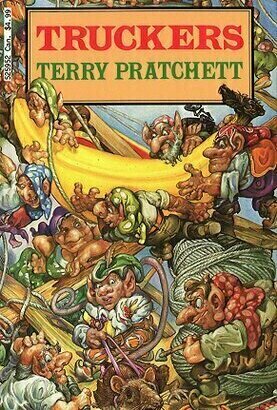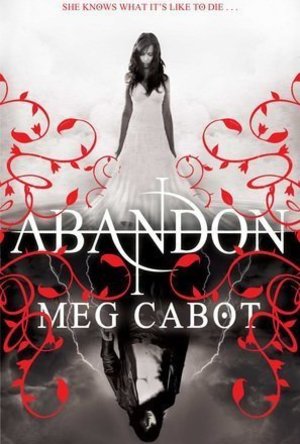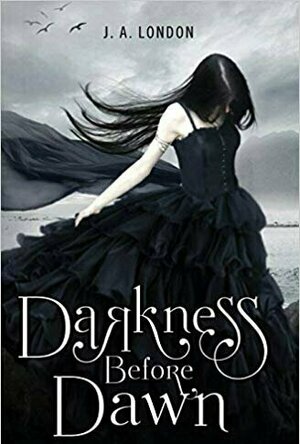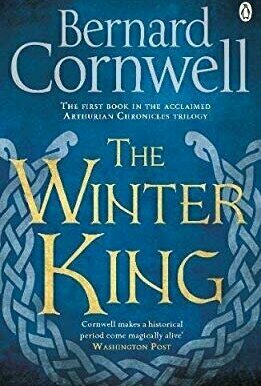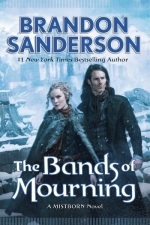Search
Search results
Paul Schneider recommended Three Colors: Blue (Trois Couleurs: Bleu) (1993) in Movies (curated)
Paul Schneider recommended Three Colors: Red (Trois couleurs: Rouge) (1994) in Movies (curated)
Paul Schneider recommended Three Colors: White (Trois Couleurs: Blanc) (1994) in Movies (curated)
David McK (3721 KP) rated Truckers (Bromeliad Trilogy, #1) in Books
Dec 13, 2020
First book of Terry Pratchett's so-called Bromeliad trilogy (consisting of this, Diggers and Wings) which, I believe, was turned into a stop motion kids TV series in the early 90s.
This follows a race of tiny people known as 'Nomes' from another planet, who have crash landed on planet Earth thousands of years ago and have now all but forgotten their own past, with some living in the fields where they are preyed upon by wildlife and others in a large department store and refusing to believe there is such a thing as 'outside' ('did not Arnold Bros., est 1905, say "everything under one roof" ...')
This belief is put to the test when Masklin - one of the outside Nomes - arrives in the store leading a ragtag group of (mostly older) Nomes, just before said store is about to be demolished, and having to hatch a plan to rescue as many Nomes as he can and get back home safely, aided by 'The Thing' (what we would term a black box computer) that has been dormant for many centuries in (again, what we would term) power-saving mode.
This follows a race of tiny people known as 'Nomes' from another planet, who have crash landed on planet Earth thousands of years ago and have now all but forgotten their own past, with some living in the fields where they are preyed upon by wildlife and others in a large department store and refusing to believe there is such a thing as 'outside' ('did not Arnold Bros., est 1905, say "everything under one roof" ...')
This belief is put to the test when Masklin - one of the outside Nomes - arrives in the store leading a ragtag group of (mostly older) Nomes, just before said store is about to be demolished, and having to hatch a plan to rescue as many Nomes as he can and get back home safely, aided by 'The Thing' (what we would term a black box computer) that has been dormant for many centuries in (again, what we would term) power-saving mode.
Leanne Crabtree (480 KP) rated Abandon (Abandon, #1) in Books
Sep 5, 2019
3.5 stars.
I had no idea what to expect with this book as the synopsis was a little vague and I have to say now, slightly false.
The way it was written near the start was intriguing, trying to figure out what had happened between Pierce and John in the Underworld when only being given quick peeks here and there and it grabbed my attention. But then when the style continued throughout, going to past situations where John had turned up, it started to annoy me a little.
I'm not sure how I feel about their relationship because it did sort of appear out of nowhere. I can understand John's feelings because he'd met her before and been keeping her safe for the past two years but Pierce was afraid of him during that time so her feelings are a bit doubtful, if you ask me.
I did like John, though he acted a little moody throughout when we read about him. And Pierce, well, she was a bit annoying in places.
I have to admit though I think I will continue the trilogy.
I had no idea what to expect with this book as the synopsis was a little vague and I have to say now, slightly false.
The way it was written near the start was intriguing, trying to figure out what had happened between Pierce and John in the Underworld when only being given quick peeks here and there and it grabbed my attention. But then when the style continued throughout, going to past situations where John had turned up, it started to annoy me a little.
I'm not sure how I feel about their relationship because it did sort of appear out of nowhere. I can understand John's feelings because he'd met her before and been keeping her safe for the past two years but Pierce was afraid of him during that time so her feelings are a bit doubtful, if you ask me.
I did like John, though he acted a little moody throughout when we read about him. And Pierce, well, she was a bit annoying in places.
I have to admit though I think I will continue the trilogy.
Leanne Crabtree (480 KP) rated Darkness Before Dawn (Darkness Before Dawn, #1) in Books
Sep 6, 2019
3.25 stars.
I liked this to start with--the first 40% or so--but then I started to lose interest. I can't put my finger on what it was but I was determined to carry on and figure out who "hoodie" was and why Sin seemed a little odd.
It rumbled along at a quite sedate pace for awhile, nothing too much happening apart from relationship issues. I was interested in a Dawn/Victor romance and we had a little of that but I thought there was too much Michael for my liking and I wasn't too fond of him for a time.
At about the 85% mark, I realised something and I was pleasantly surprised and then another something happened at the 90% mark that had me getting interested in the story again.
But then that ending! How could it just end like that?! I'm sure that Victor will stop, though, after all she is the only sunshine he will ever see.
My edition contained a preview of the next book in the trilogy but I skipped it as I'm not entirely convinced that I liked it enough to continue the series.
I liked this to start with--the first 40% or so--but then I started to lose interest. I can't put my finger on what it was but I was determined to carry on and figure out who "hoodie" was and why Sin seemed a little odd.
It rumbled along at a quite sedate pace for awhile, nothing too much happening apart from relationship issues. I was interested in a Dawn/Victor romance and we had a little of that but I thought there was too much Michael for my liking and I wasn't too fond of him for a time.
At about the 85% mark, I realised something and I was pleasantly surprised and then another something happened at the 90% mark that had me getting interested in the story again.
But then that ending! How could it just end like that?! I'm sure that Victor will stop, though, after all she is the only sunshine he will ever see.
My edition contained a preview of the next book in the trilogy but I skipped it as I'm not entirely convinced that I liked it enough to continue the series.
David McK (3721 KP) rated The Winter King in Books
Sep 4, 2020
The first of Bernard Cornwell's so-called Warlord trilogy novels, which are a retelling/reimagining of the King Arthur Legend.
These are also novels that - despite being the author's own personal favourites of the (many) novels he has written - I have struggled with, never really getting into them or feeling any connection with the story or character in the same way as I do towards Uhtred of Bebbanburg, or to Richard Sharpe.
I don't know whether that's because these are so different than I was originally expecting (the magic and mysticism of the tales, here, are more to do with superstition and ignorance), or whether because it may be fairer to call these a tale of Derfel, who narrates the story in later life in a monastery and how - here- he first came to the service of Arthur, the King that never was.
Maybe also because of the Dark Ages setting, which - obviously, since so little is known of that period (hence the name Dark Ages!) - means that Cornwell can't really bring history to life like he does in most of his other works?
These are also novels that - despite being the author's own personal favourites of the (many) novels he has written - I have struggled with, never really getting into them or feeling any connection with the story or character in the same way as I do towards Uhtred of Bebbanburg, or to Richard Sharpe.
I don't know whether that's because these are so different than I was originally expecting (the magic and mysticism of the tales, here, are more to do with superstition and ignorance), or whether because it may be fairer to call these a tale of Derfel, who narrates the story in later life in a monastery and how - here- he first came to the service of Arthur, the King that never was.
Maybe also because of the Dark Ages setting, which - obviously, since so little is known of that period (hence the name Dark Ages!) - means that Cornwell can't really bring history to life like he does in most of his other works?

Tears of Ink (Tears of ... #1)
Book
She has one rule: Never sleep with someone twice. Faith Hitchin wears the shadows of the past...
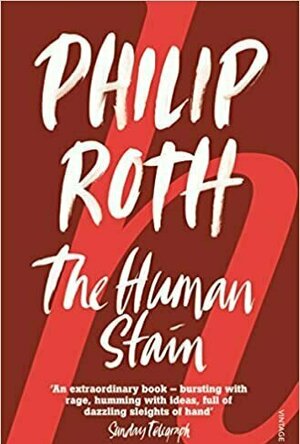
The Human Stain
Book
Philip Roth’s brilliant conclusion to his eloquent trilogy of post-war America – a magnificent...



